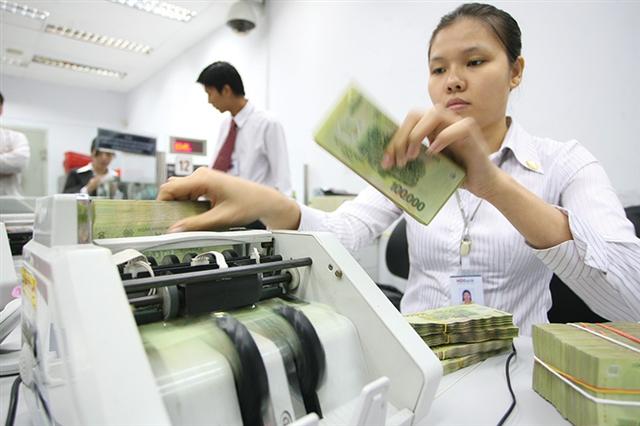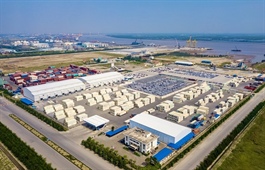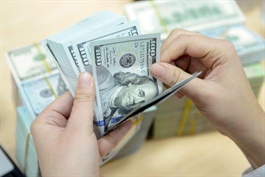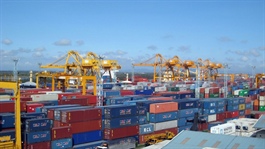Growth to spur via raised public debt
Growth to spur via raised public debt
The government is planning to raise the country’s public debt in an aim to spur on the economy’s aggregate demand, creating opportunities for international organisations to offer loans.

In line with advice by World Bank and IMF, the prime minister has ordered a more flexible fiscal approach, Photo: Le Toan
|
Prime Minister Nguyen Xuan Phuc has ordered the use of a more proactive and flexible fiscal policy in the second half of 2020, with the permission of an additional rise of 2-3 per cent in public debt.
“This is aimed to stipulate domestic consumption and production, as well as exports, which are the key impetuses for further growth this year,” PM Phuc stated at his meeting last week with the Ministry of Finance (MoF). “The increase in public debt must not affect the national financial security in the short and long terms. The problem is that we must have effective solutions in using capital.”
The allowed additional ratio in public debt would mean that this type of debt can be about 56.3-57.3 per cent of GDP this year, or $149 billion and $151.8 billion, if GDP grows 4 per cent this year.
So as to apply such a climb in public debt, which will not affect Vietnam’s earlier target set by the National Assembly, the government will have to seek permission from the legislature under current regulations.
Professor Philippe Mario Aghion from Harvard University told the Ministry of Planning and Investment at last week’s webinar on post-pandemic global economic growth and policy implications for Vietnam, held by the ministry, that the country should not be worried about any rise in public debt now.
“Vietnam is now in good fiscal stance, with a good debt payment ability,” Aghion said. “Currently both demand and supply in the country remain at a low level, so if it wants to invest more into infrastructure, public services, and research activities, it must increase public debt.”
The Economist’s Global Debt Clock showed that, by late last week, Vietnam’s public debt was $102.45 billion, equal to 44.3 per cent of GDP, and per capita debt was $1,123.
The fact that Vietnam may increase its cap of public debt may be good news for international organisations such as the World Bank, the International Monetary Fund (IMF), and the Asian Development Bank (ADB) who want to extend their loans to Vietnam to fight COVID-19 and spur on economic growth.
For example, the World Bank in Vietnam is now working with the MoF about the possible loans. Final results have yet to be made. The World Bank Group offers two financial packages worldwide to nations, including Vietnam.
The first one is a $14 billion package of fast-track financing to assist companies and countries. It will strengthen national systems for public health preparedness, including for disease containment, diagnosis, and treatment, and support the private sector.
In this package, Vietnam is able to receive $50 million, with an ordinary interest rate. Meanwhile, in the second package, the World Bank Group is prepared to deploy up to $160 billion over the next 15 months to support COVID-19 measures that will help countries respond to immediate health consequences of the pandemic and bolster economic recovery. With this package, Vietnam is able to receive $500 million which can be directly pumped into the state budget and the country can spend the money on economic recovery.
PM Phuc has asked the MoF to work with the ADB and the IMF about the possibility of loans. Over the past few years, Vietnam’s success in controlling public debt via a wise fiscal policy has earned praise from high-profile international financial organisations.
Nguyen Minh Cuong, principal country economist from the ADB in Vietnam, told VIR that Vietnam has been doing a good job in reducing public debt, helping to ensure the country’s financial security.
“The government will continue to pursue fiscal consolidation. While disbursement on capital expenditure should speed up, the government is continuing its efforts to strengthen revenue collection and impose much tighter controls on nonessential spending to contain the budget deficit and improve public debt sustainability,” Cuong said.
The World Bank also commended Vietnam’s big efforts to rein in public debt. “The government has continued the consolidation of its fiscal accounts with the objective of further reducing the public debt. The level of public borrowing should reach about 56 per cent at the end of 2019, almost eight percentage points lower than the peak reported in 2016,” the World Bank stated in a report on Vietnam’s economy. “By following a countercyclical fiscal policy, the authorities have not only sent a strong and positive signal to markets about their commitment to macro-economic and debt sustainability, but they have also created additional fiscal space.”
Recently the MoF announced its calculation that Vietnam’s public debt will continue to reduce from 56.1 per cent of GDP in 2019 to 54.3 per cent in 2020 and 53.3 per cent in 2021. This has reflected the government’s sound policies in macro-economic monitoring, increasingly ensuring the national financial security.
According to Francois Painchaud, resident representative for Vietnam and Laos of the IMF, in the last few years the Vietnamese government has successfully carried out significant fiscal consolidation and strictly limited new issuance of government guarantees, reversing the rapid increase in public and publicly guaranteed debt.
“Going forward, Vietnam’s debt-to-GDP is expected to fall further due to the authorities’ commitment to prudent fiscal policy, but also the forthcoming GDP revisions. This may help improve Vietnam’s credit rating and lower its financing cost, which may also positively affect business financing costs,” he said.



























